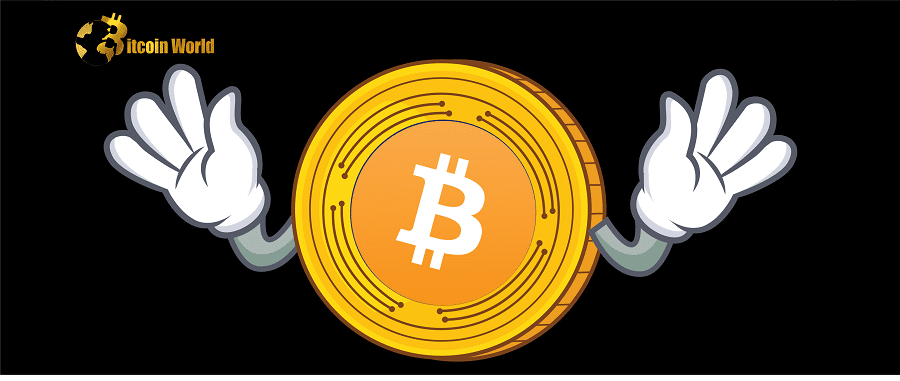In an era where digital freedoms are increasingly under scrutiny, and discussions around governmental control are amplified, Bitcoin emerges not just as a digital currency, but as a potential beacon of liberty. According to Alex Gladstein, Chief Strategy Officer at the Human Rights Foundation (HRF), Bitcoin isn’t just about finance; it’s a powerful tool that can challenge authoritarian regimes and champion human rights worldwide. Let’s dive into how this digital asset is becoming a surprising advocate for freedom in the face of oppression.
Who is Alex Gladstein and Why Should We Listen?
Alex Gladstein isn’t your typical crypto enthusiast. As the Chief Strategy Officer at the Human Rights Foundation, he’s deeply immersed in the global struggle for human rights, especially in countries living under authoritarian rule. Since joining HRF in 2007, Gladstein has been at the forefront of promoting and protecting fundamental freedoms. He’s also a lecturer at Singularity University, educating on the future of money and, crucially, Bitcoin. His unique perspective bridges the gap between the crypto world and the urgent needs of human rights defenders globally.
Bitcoin: A Financial Fortress Against Tyranny?
Gladstein’s core argument is compelling: Bitcoin’s decentralized nature acts as a natural restraint against despotic governments. In a recent interview, he stated that the decline of democracies is often linked to fiat currency systems, systems that are easily manipulated and controlled by central authorities. Bitcoin, he argues, offers a potent antidote.
Here’s how Bitcoin steps up as a freedom fighter:
- Decentralization as a Shield: Bitcoin operates without a central authority. This means no single government or entity can control or shut it down. Imagine a financial system that operates outside the grasp of overreaching powers. That’s the promise of Bitcoin.
- Censorship Resistance: Try censoring Bitcoin transactions. It’s incredibly difficult. This inherent censorship resistance is crucial for activists, journalists, and citizens in oppressive regimes who need to transact and communicate freely without fear of surveillance or shutdowns.
- Open Capital Markets: Bitcoin fosters open capital markets, making it harder for governments to impose strict financial controls. In countries where governments restrict access to capital, Bitcoin can provide a vital lifeline, enabling individuals to participate in the global economy.
- Property Rights Revolution: Bitcoin empowers individuals with true digital property rights. In many authoritarian states, property rights are tenuous at best. Bitcoin gives individuals a form of property that is incredibly difficult to confiscate, offering a layer of financial sovereignty.
Examples in Action: Why Authoritarian Regimes Fear Crypto
Gladstein points to specific nations like China and Russia to illustrate his point. These countries, known for their stringent control over information and capital, have historically opposed cryptocurrency. Why?
As Gladstein explains, “This is what China and Russia need to survive – they need censorship, they need closed capital markets, and they need confiscation.” Bitcoin directly challenges these pillars of control. Let’s break down the examples:
| Country | Government Stance on Crypto | Why Bitcoin is a Challenge |
|---|---|---|
| China | Banned almost all crypto transactions in 2021. However, Hong Kong’s evolving crypto licensing regime hints at a possible shift. | Bitcoin’s decentralized nature undermines China’s tight control over its financial system and information flow. |
| Russia | Banned crypto payments in 2020 under the “On Digital Financial Assets” law. While investment is allowed, local exchanges remain unregulated. | Bitcoin’s potential to bypass traditional financial channels threatens Russia’s ability to monitor and control financial activities. |
These actions aren’t arbitrary. They reflect a deep-seated concern about losing control in a world where decentralized digital currencies gain traction.
Echoes of Freedom: OpenNode and the Power of Bitcoin Donations
Gladstein isn’t alone in this view. Bitcoin infrastructure company OpenNode highlighted in 2021 how BTC donations played a crucial role in circumventing government crackdowns. Bitcoin’s inherent censorship resistance becomes a lifeline for organizations and individuals facing financial isolation due to their political stances or activities.
OpenNode emphasizes, “Without any central authority to define who can and can’t use Bitcoin, many individuals and organizations who have been shut out of traditional payment methods have chosen it.” This resonates deeply with the experiences of activists and NGOs operating in restrictive environments.
Looking Ahead: Bitcoin as a Safety Net in Turbulent Times
A February 2022 analysis by Elliptic further underscores this point, noting that blockchain-based fundraising has become a key strategy for avoiding financial institutions that might close traditional accounts. As traditional financial systems face increasing pressures and potential breakdowns, Gladstein anticipates more people turning to Bitcoin.
He foresees “trigger moments” of “technical and liquidity difficulty with traditional financial services” in the coming years. In an increasingly fractured world, Bitcoin offers an alternative, a decentralized financial infrastructure that remains operational even when traditional systems falter. “If there’s a dispute or a breakdown in trade or communications, you’re just going to see a whole hell of a lot of difficulties,” Gladstein warns, suggesting Bitcoin could become an essential safety net.
The Takeaway: Bitcoin – More Than Just an Investment?
Is Bitcoin the ultimate solution to authoritarianism? Perhaps not single-handedly. But, as Alex Gladstein and others argue, it represents a significant step towards empowering individuals and challenging oppressive systems. By providing a censorship-resistant, decentralized, and globally accessible financial network, Bitcoin offers a powerful tool for promoting free expression, protecting property rights, and fostering open capital markets – all critical components of a free society. As the world navigates increasing geopolitical and economic uncertainties, the role of Bitcoin as a tool for freedom may become more critical than ever.
Disclaimer: The information provided is not trading advice, Bitcoinworld.co.in holds no liability for any investments made based on the information provided on this page. We strongly recommend independent research and/or consultation with a qualified professional before making any investment decisions.


